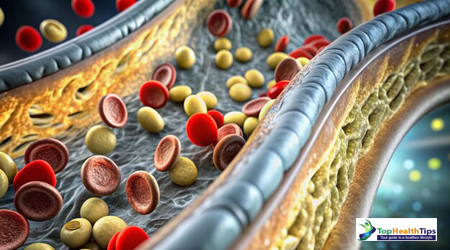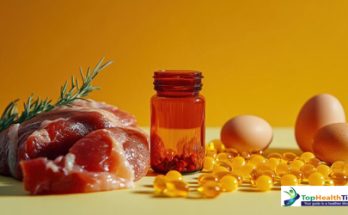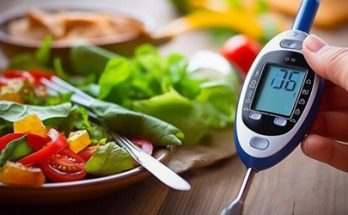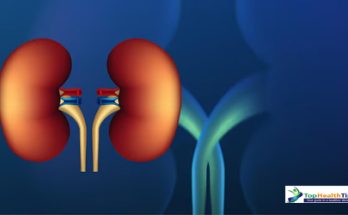LDL cholesterol, often labeled as “bad cholesterol,” is a key player in the development of heart disease. Excess LDL can build up in the walls of your arteries, leading to a condition known as atherosclerosis, which restricts blood flow and increases your risk of heart attack and stroke. Fortunately, you can lower your LDL cholesterol naturally through scientifically backed lifestyle changes.
Understanding LDL Cholesterol
Low-density lipoprotein (LDL) carries cholesterol throughout your body. While your cells need cholesterol for proper function, too much LDL can lead to plaque buildup in the arteries. This can cause them to harden, narrow, and potentially block blood flow, leading to cardiovascular complications.
Why Lower LDL Cholesterol Naturally?
Medication, such as statins, can lower LDL levels, but natural methods are often just as effective and free from side effects. Lowering LDL cholesterol can:
- Decrease the risk of cardiovascular disease.
- Improve overall heart health and longevity.
- Enhance your quality of life without the need for long-term medication.
Below are scientifically supported strategies to lower LDL cholesterol naturally.
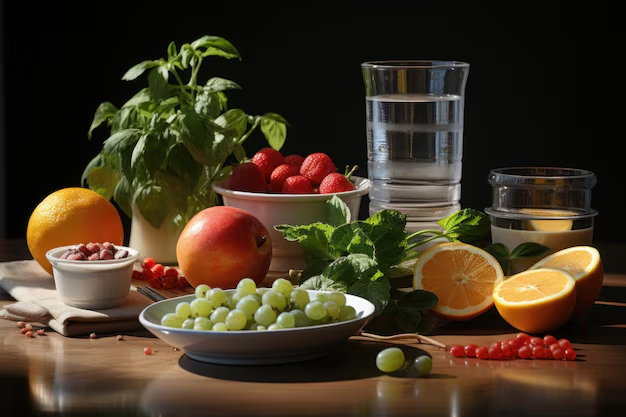
1. Adopt a Cholesterol-Lowering Diet
Diet is one of the most powerful ways to control cholesterol levels. Certain foods can help reduce LDL cholesterol, while others can increase it.
Foods That Lower LDL:
- Soluble Fiber: Soluble fiber binds to cholesterol in your digestive system and removes it from your body. Foods like oats, beans, lentils, apples, and flaxseeds are excellent sources.
- Science Says: A 2011 study published in The American Journal of Clinical Nutrition found that consuming an extra 5-10 grams of soluble fiber daily can lower LDL by up to 5%.
- Healthy Fats: Replace saturated and trans fats with monounsaturated and polyunsaturated fats. Olive oil, avocados, nuts, and fatty fish (like salmon) are packed with omega-3 fatty acids, which reduce LDL and protect heart health.
- Research Backing: A 2003 meta-analysis published in the American Journal of Clinical Nutrition concluded that diets rich in unsaturated fats significantly lower LDL cholesterol levels.
- Plant Sterols and Stanols: Naturally occurring compounds in fruits, vegetables, and nuts, plant sterols block cholesterol absorption in the gut, reducing LDL levels.
- Clinical Findings: Research in Circulation (2009) showed that daily consumption of 2 grams of plant sterols can reduce LDL by up to 10%.
- Antioxidants: Foods rich in antioxidants, like berries and dark leafy greens, prevent the oxidation of LDL, which makes it less likely to contribute to plaque formation.
Foods to Avoid:
- Saturated Fats: Found in red meat, full-fat dairy, and butter, saturated fats raise LDL cholesterol. The American Heart Association recommends limiting saturated fat intake to less than 7% of daily calories.
- Trans Fats: Found in many processed and fried foods, trans fats raise LDL and lower HDL (good cholesterol). Trans fats are being phased out of most foods, but they can still be found in some baked goods.

2. Engage in Regular Physical Activity
Exercise is essential for improving your cholesterol profile. It raises HDL (good cholesterol) and lowers LDL.
Effective Exercises:
- Aerobic Exercise: Activities like walking, jogging, swimming, or cycling for 30 minutes a day, five times a week, can lower LDL cholesterol.
- Study Support: A 2013 study published in Atherosclerosis demonstrated that aerobic exercise can reduce LDL by up to 10% in sedentary adults.
- Resistance Training: Strength training, such as lifting weights or using resistance bands, performed twice a week, can complement aerobic exercise for cholesterol control.
- Evidence: The Journal of Strength and Conditioning Research (2014) found that resistance training led to modest reductions in LDL cholesterol and improvements in overall cardiovascular health.
Even moderate activity, like gardening or taking the stairs, can make a significant impact. The key is consistency.
3. Lose Excess Weight
Carrying extra weight, especially around your waistline, contributes to high LDL cholesterol. Weight loss, even in modest amounts, can lower LDL and boost HDL.
Steps to Lose Weight:
- Balanced Diet: Focus on nutrient-dense foods like vegetables, whole grains, lean proteins, and healthy fats. Avoid processed snacks and sugary beverages.
- Portion Control: Being mindful of portion sizes can help reduce caloric intake, contributing to weight loss.
- Physical Activity: Combine a healthy diet with regular exercise for the best results.
- Research Insight: A study in Obesity Reviews (2012) noted that losing 5-10% of body weight can reduce LDL cholesterol by 15%.
Weight loss also improves blood pressure, reduces inflammation, and improves insulin sensitivity, all of which are protective for heart health.

4. Quit Smoking for Healthy Heart
Smoking damages the blood vessels, accelerates atherosclerosis, and raises LDL cholesterol. When you quit smoking, your blood circulation improves, and your heart becomes stronger.
Steps to Quit Smoking:
- Get Support: Talk to your doctor about medications, nicotine replacement therapies, or counseling.
- Stay Active: Physical activity helps reduce cravings and manage stress, making quitting easier.
- Avoid Triggers: Stay away from situations where you typically smoke and substitute healthier activities.
Health Benefits of Quitting:
- Just 20 minutes after quitting, your blood pressure and heart rate decrease.
- Within 3 months, circulation and lung function improve.
- One year after quitting, your risk of coronary heart disease drops by half.
5. Limit Alcohol Intake
While moderate alcohol consumption (such as a glass of red wine) may raise HDL cholesterol, too much alcohol can increase LDL and triglycerides.
Moderation Guidelines:
- For women: Up to one drink per day.
- For men: Up to two drinks per day.
Risks of Excessive Drinking:
- High blood pressure
- Weight gain
- Increased risk of heart disease
Limiting alcohol not only helps control cholesterol but also reduces your risk of liver disease, high blood pressure, and weight gain.
6. Incorporate Natural Supplements
Certain supplements can support cholesterol management. Always consult your healthcare provider before adding supplements to your routine.
Effective Supplements for Lowering LDL:
- Omega-3 Fatty Acids: Found in fish oil, omega-3s reduce LDL and inflammation.
- Supporting Evidence: A study in The Journal of the American College of Cardiology (2019) found that omega-3 supplements reduce cardiovascular risk.
- Psyllium Husk: This soluble fiber supplement helps lower cholesterol by binding to bile acids and promoting their excretion.
- Study Results: Research in The American Journal of Clinical Nutrition (2010) showed that taking 10-15 grams of psyllium daily reduced LDL by 7%.
- Niacin (Vitamin B3): Niacin has been shown to lower LDL and raise HDL, but it should be taken under medical supervision due to potential side effects.
7. Manage Stress
Chronic stress leads to behaviors like overeating, smoking, or alcohol consumption, all of which can raise LDL cholesterol. Additionally, stress hormones like cortisol are linked to higher cholesterol levels.
Stress Reduction Techniques:
- Mindfulness Meditation: Practicing mindfulness and meditation has been shown to reduce stress and improve heart health.
- Exercise: Physical activity not only helps reduce LDL but also serves as a natural stress reliever.
- Deep Breathing Exercises: Techniques like diaphragmatic breathing can calm the nervous system and lower cortisol levels.
- Research Insight: A 2016 study in the Journal of Clinical Psychiatry found that mindfulness-based stress reduction techniques significantly reduced blood pressure and LDL cholesterol.
8. Stay Hydrated
Proper hydration supports your body’s natural processes, including cholesterol metabolism. Drinking enough water helps the liver metabolize fats more efficiently, which can contribute to lower LDL levels.
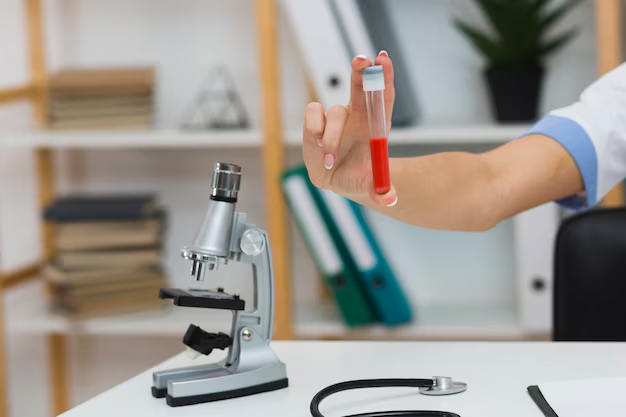
Interactive Cholesterol-Lowering Tools
Utilize the following tools to support your cholesterol-lowering journey:
- Cholesterol-Tracking Apps: MyFitnessPal and Cronometer can help track your cholesterol levels and dietary habits.
- Step-Tracking Devices: Wearables like Fitbit can monitor your physical activity, helping you stay consistent with exercise.
- Meal Planning Apps: Apps like EatThisMuch allow you to plan cholesterol-friendly meals based on your preferences and goals.
Conclusion
Lowering LDL cholesterol naturally requires a comprehensive lifestyle approach. By incorporating heart-healthy foods, regular exercise, weight management, stress reduction, and quitting smoking, you can significantly improve your cholesterol profile and reduce your risk of heart disease. These scientifically backed strategies offer long-term benefits, enhancing both your heart health and overall well-being.
Remember to consult with a healthcare professional before making any significant lifestyle changes or starting supplements. Consistent monitoring of your cholesterol levels will help track your progress and keep your heart healthy for years to come.
Related post for Disease & Remedy>>>
References:
- Anderson JW, et al. (2009). The role of fiber in managing hyperlipidemia. Journal of Nutrition.
- Kris-Etherton PM, et al. (2001). Fish consumption and the risk of coronary heart disease. The New England Journal of Medicine.
- National Heart, Lung, and Blood Institute. (2020). High Blood Cholesterol: What You Need to Know.

